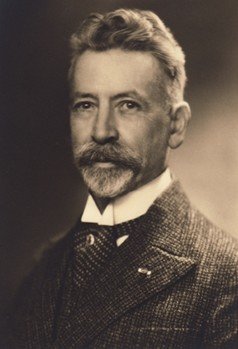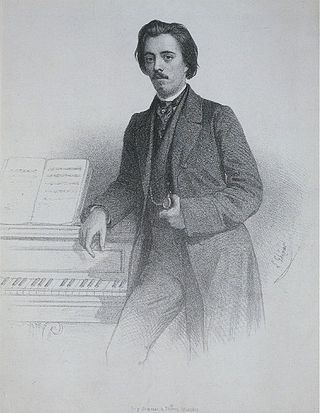Willy Burkhard was a Swiss composer and academic teacher, influential in both capacities. He taught music theory at the Berne Conservatory and the Zürich Conservatory. His works include an opera, oratorios, cantatas, and many instrumental genres from piano pieces to symphonies.

Jules Jozef Paul Maria Van Nuffel was a Belgian priest, composer, choirmaster, music pedagogue, musicologist and a renowned expert on religious music.

Julianus Marie August De Boeck was a Belgian composer, organist and music pedagogue. He was the son of organist and director Florentinus (Flor) De Boeck (1826-1892)

Hendrik Franciscus Andriessen was a Dutch composer and organist. He is remembered most of all for his improvisation at the organ and for the renewal of Catholic liturgical music in the Netherlands. Andriessen composed in a musical idiom that revealed strong French influences. He was the brother of pianist and composer Willem Andriessen and the father of the composers Jurriaan Andriessen and Louis Andriessen and of the flautist Heleen Andriessen.
Stefans Grové was a South African composer. Before his death the following assessment was made of him: "He is regarded by many as Africa's greatest living composer, possesses one of the most distinctive compositional voices of our time".

Joseph Ryelandt was a Belgian classical composer. He is known for sacred vocal music, including several oratorios and masses. His oeuvre catalog, which lists 133 opus numbers, includes symphonies, masses, an opera, numerous works for piano solo, chamber works and songs, and also five oratorios, which Ryelandt himself considered his most important works.

Adolphe-Abraham Samuel was a Belgian music critic, teacher, conductor and composer.

Albert Dupuis was a Belgian composer.
Victor Legley was a Belgian violist and composer of classical music, of French birth. He first studied in Ypres with Lionel Blomme (1897–1984). In 1935 he matriculated at the Royal Conservatory in Brussels, and there won awards in the study of viola, fugue, counterpoint and chamber music.

David Ezra Okonşar is a Turkish–Belgian pianist, composer, conductor, writer, and educator. He was previously known as "Mehmet Okonşar".
Paul Constant Eugène de Maleingreau was a Belgian composer and organist.

Jozef De Beenhouwer is a Belgian pianist, music teacher and musicologist.

Louis Brassin was a Belgian pianist, composer and music educator. He is best known now for his piano transcription of the Magic Fire Music from Wagner's Die Walküre.

Viviana Sofronitsky is a Russian and Canadian classical pianist, born in Moscow. Her father was the Soviet-Russian pianist Vladimir Sofronitsky.

Ignace Michiels is a Belgian organist, choral conductor and organ teacher. He is internationally known as a concert organist.

The Reger-Chor is a German-Belgian choir. It was founded in Wiesbaden in 1985 and has been conducted by Gabriel Dessauer in Wiesbaden. Since 2001 it has grown to Regerchor-International in a collaboration with the organist Ignace Michiels of the St. Salvator's Cathedral of Bruges. The choir performs an annual concert both in Germany and Belgium of mostly sacred choral music for choir and organ. Concerts have taken place regularly in St. Bonifatius, Wiesbaden, and in the cathedral of Bruges in its series "Kathedraalconcerten". The choir performed additional concerts at other churches of the two countries and in the Concertgebouw of Bruges.
Arthur Meulemans was a Belgian composer, conductor, and music teacher.
Greta De Reyghere is a Belgian soprano who specializes in early music and Baroque music in historically informed performance but also performs a variety of other classical music in concert. She is a teacher at the Royal Conservatory of Liège.
Marinus Adrianus (Marius) Monnikendam was a Dutch composer, organist, and music critic. He studied at the Amsterdam Conservatory. In 1925 Monnikendam went to Paris and attended Vincent d’Indy's Schola Cantorum. During this time, he published his first works for piano and cello. He then became a lecturer at the Rotterdam Conservatory and the Amsterdam Music Lyceum. Monnikendam composed mostly religious and secular works. He also published books on César Franck and Igor Stravinsky. His Lamentations of Jeremiah for chorus and orchestra, written in 1956 was broadcast by Radio Holland during the funeral services for both former Queen Wilhelmine (1962) and President John F. Kennedy (1963). His most popular work is the Toccata for Organ (1936).












